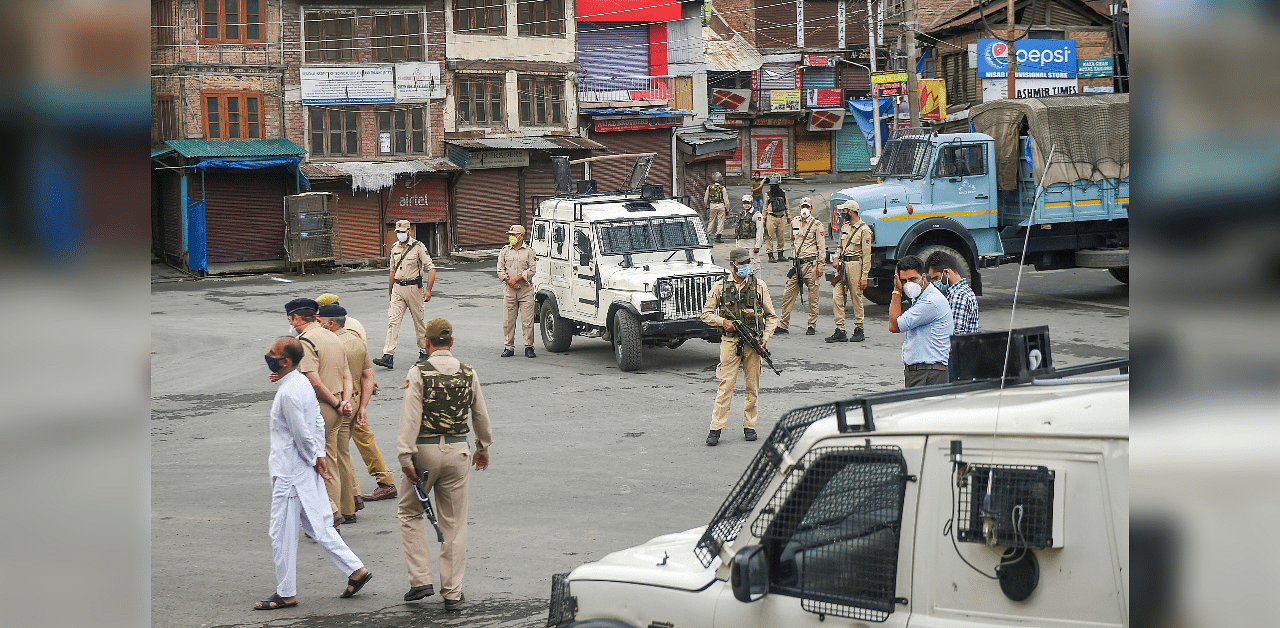
As the government is all set to celebrate the first anniversary of revocation of special status for Jammu and Kashmir, a group of concerned citizens led by former Union Minister Yashwant Sinha on Saturday said the region continues to be in a "social, economic, political and communication lockdown" for a year but none of the stated goals of the move has been achieved.
In a statement, the Concerned Citizens Group (CCG) said Kashmiris have "lost any faith they had in the Indian political leadership and the judiciary" and they seem to believe that the Indian government wants to "marginalise" them.
The group demanded the immediate release of PDP leader and former Jammu and Kashmir Mehbooba Mufti and all Kashmiris who were taken into preventive detention under Public Safety Act (PSA), restoration of 4G communication, lifting of curbs on all peaceful political activity and starting a multi-level dialogue process with all those affected by the August 5 decision.
"In early hours of that day (5 August 2019), a complete lockdown imposed and mainstream political leaders, businessmen, lawyers and thousands of others were arrested. A year later, J&K continues to be in a social, economic, political and communication lockdown. None of the stated goals of the government - of bringing Kashmir closer to India, ending militancy, bringing development to the state – have been achieved," the CCG said.
Also Read | Jammu & Kashmir administration extends detention of Mehbooba Mufti by 3 months under PSA
Besides Sinha, the statement was signed by former Chief Information Commissioner of India and ex-Chairman of National Commission for Minorities Wajahat Habibullah, Air Vice-Marshall (Retd) Kapil Kak, veteran journalist Bharat Bhushan and peace activist Sushobha Barve.
The group accused the Centre of internationalising the Kashmir issue to the detriment of India. They said the government was criticised for human rights violations and stoking Islamophobia while security experts point out that the changes in the status of Jammu and Kashmir also prompted Chinese incursions in Ladakh.
Also Read | Kashmir domicile law raises fears of losing land, culture
While the Centre's actions had led to "shock, trauma and humiliation amongst the local citizens" and their "simmering anger at their helplessness still persists", they said, it is "significant" that the Kashmiris through their "display of mature behaviour prevented public violence and chose mass civil disobedience instead to show unhappiness".
"The Kashmiris seem to believe that the Indian government wants to marginalise them. This fear is expressed most vividly in the fear of demographic change by creating new settlements for outsiders. That the Union government has used the pandemic-induced lockdown to implement domicile laws for the UT has not helped allay these fears. The media which could have promoted debate on this issue is being harassed and hounded," the CCG said.
It noted that the internet ban in Kashmir continues with only 2G connectivity being provided now and this has affected students, job seekers, entrepreneurs, businesses and ordinary citizens alike and created havoc in banking, trade, business and healthcare.
The statement also said Kashmir’s economy was also plunged into an abyss with the sudden and mass exodus in early August of tourists and the non-Kashmiri labour force.
